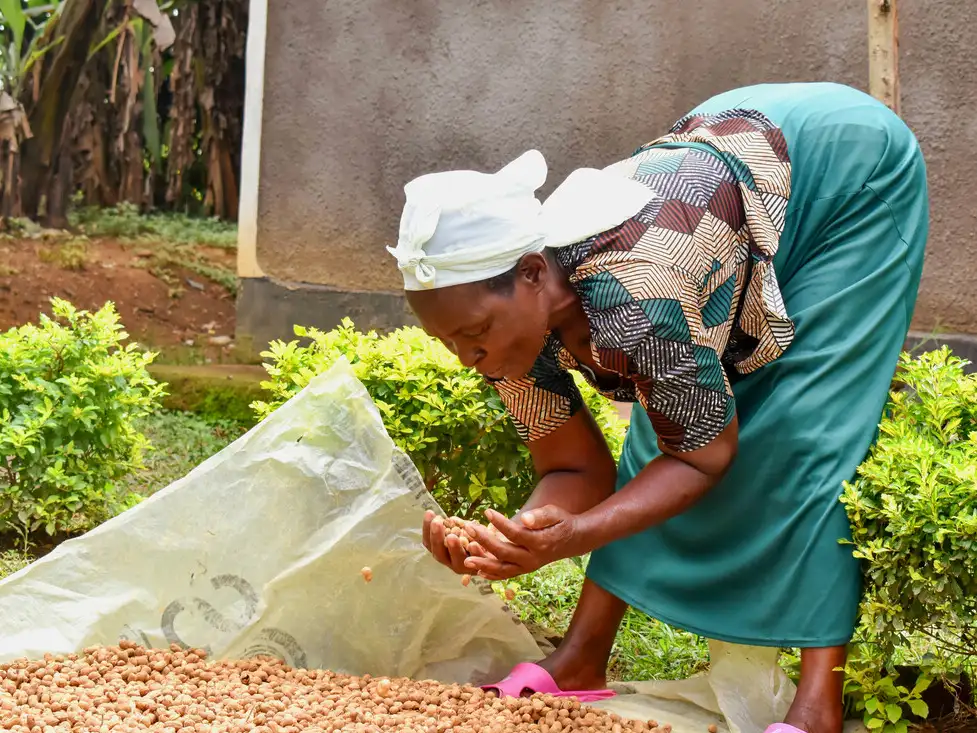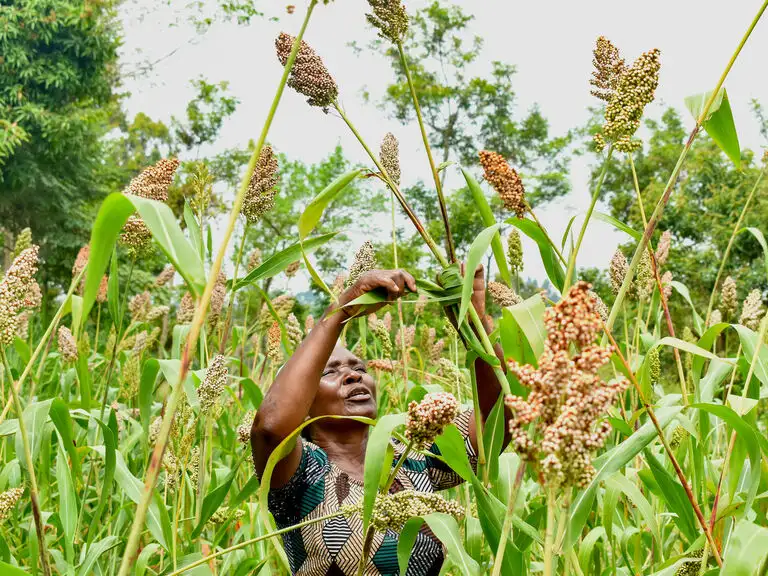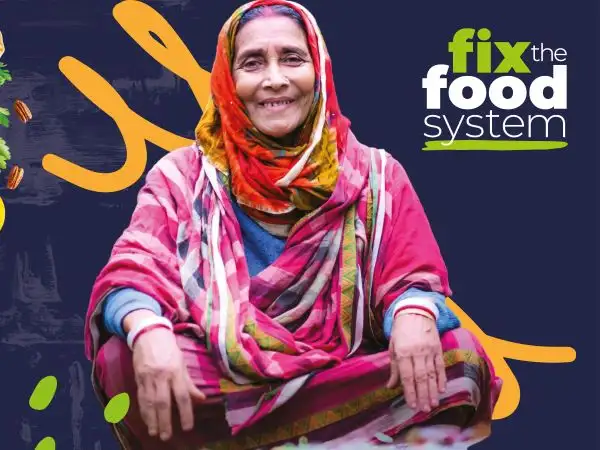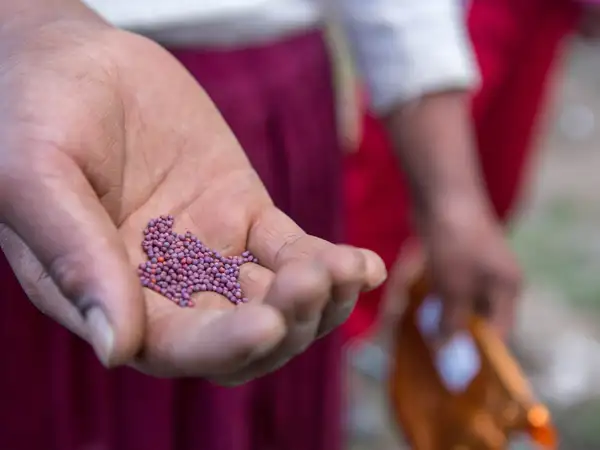The global food system is broken. It doesn’t work for those who work the hardest – small farmers – and it’s a major driver of the climate emergency.


Caroline is a farmer from Busia who specialises in growing, preservation and training others on indigenous seeds saving and storing
For the past two years CAFOD supporters have been calling on the World Bank to stop pushing countries to enforce new seed laws. These laws include restrictions on small-scale farmers’ rights to save, share and sell their seeds.
Your parish might have been one of the 700 who supported last year’s letter from Salina - a small-scale farmer from Bangladesh who wrote to the World Bank urging them to return seeds to the hands of farmers.
The World Bank has so far been receptive to our campaign. From their detailed responses to our letters, and meetings with CAFOD staff and supporters, through to engaging in a public discussion with CAFOD partners, we are reassured that the World Bank is listening to us.
Yet still the change we so urgently need remains far from materialising.
Why should you continue to campaign on seed sovereignty?
One of many reasons you should continue to campaign is that, as our latest research reveals, this problem is too big and is affecting too many women for us to look away.
CAFOD and our partner BIBA-Kenya (Biodiversity and Biosafety Association Kenya) recently conducted research into how Kenya’s 2012 seed law has impacted women, who constitute up to 80% of Kenya’s agricultural labour force.
This law is similar to those promoted by the World Bank and is designed to regulate and strengthen the commercial seed sector. By examining the impacts of Kenya’s seed law, we can gain insight into how the World Bank’s programmes are likely to affect millions of women farmers around the world.
Women and men may choose together the varieties to be grown for the family or community, but women do the work of saving, exchanging and selling seeds
Kenya’s seed laws are not working for women
As in many low-income countries, in Kenya seeds are accessed through two systems:
The commercial sector which involves government and commercial plant breeders developing and releasing new seed varieties which are certified and regulated and then sold on the market.
The farmer-managed seed system, which is built on farmers saving and breeding their own seeds based on the specific characteristics of the soil or climate of a region, and/or the cultural or nutritional needs of a particular community. These are then sold, swapped or shared amongst farmers.
The research involved interviewing women farmers and seed savers to hear first-hand how the new laws have impacted them. The research participants reported that women are the main seed savers within the farmer-managed seed system in Kenya. Women and men may choose together the varieties to be grown for the family or community, but women do the work of saving, exchanging and selling seeds. Because of this, women are the ones most directly affected by the changes in the law.
The report found that:
The availability of seeds has changed since the law was passed, with a reduction in the number of local seed varieties available, and some varieties now extinct. This means that women farmers have a much more limited range of crops available to them, making it harder to work as seed producers.
The cost of certifying seeds is beyond the reach of most women farmers. What’s more, the certification process is not designed for indigenous seeds due to stringent requirements for seeds to be ‘uniform’ and ‘stable’. This has meant that women are increasingly excluded from the commercial seed sector.
Despite continued high demand for indigenous seeds, fewer women farmers are saving seeds because of fears over the sanctions associated with the new laws. In addition, limited access to credit means that women may not be able to afford to buy certified seeds either. Together, this means women are slowly losing their access to, and control of, seeds.
The law prohibiting the sale or even the exchange of seeds really weighs down the women involved in seed saving. The high penalties and potential jail terms make many women farmers afraid to practice seed saving. This has had an impact on their autonomy, incomes and even food security.

Seed systems and gender equality
In this report, CAFOD has analysed a selection of World Bank agriculture programmes from 2024 to assess their approach to gender.
We found that they focused almost exclusively on promoting the commercial seed market and encouraging farmers to buy hybrid seeds and fertilisers. Yet they ignored the role of farmer-managed seed systems in enabling small-scale farmers to tackle poverty and enhance food security.
Campaign with us
Pray with us for a fairer global food system where everyone has enough.



